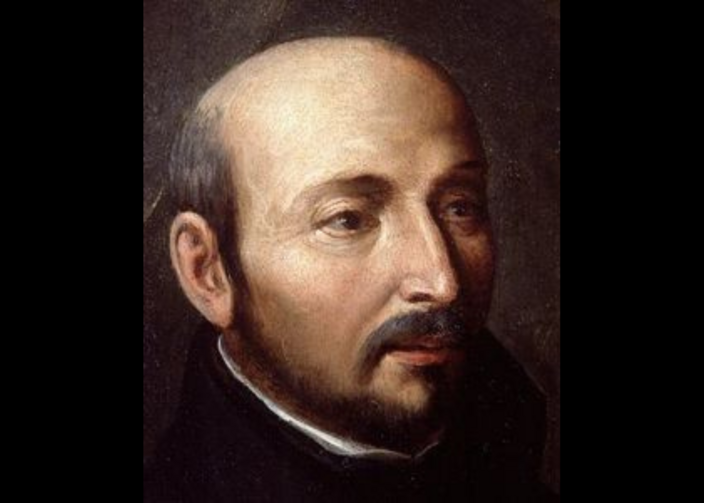A Reflection for the Feast of St. Ignatius
“Put to death, then, the parts of you that are earthly:
immorality, impurity, passion, evil desire,
and the greed that is idolatry.” (Col 3:5)
Many of you probably know the story of St. Ignatius Loyola, founder of the Society of Jesus, whose feast day is the last day of July—of how an ambitious, vainglorious young man in the service of the king found himself in 1521 leading the defense of Pamplona against the most powerful army in Europe; of how he refused to surrender in the face of the most desperate odds; of how a cannon ball shattered his leg as his army collapsed. You may have heard about how Ignatius was carried back to Loyola—two excruciating weeks over several mountains—to his ancestral home, where, while recovering from his wounds, he had a “conversion” experience while reading the Life of Christ and the Book of the Saints.
You can visit the room where it happened—it’s called the Chapel of the Conversion. Except that name is a misnomer. True, Ignatius’ conversion began there, but it didn’t end there. Other Christians may describe their conversion experiences as having occurred at a specific moment. They may even pinpoint the exact date and time. But Catholics don’t generally think about it that way. For most of us, conversion is a process, a series of moments, of advance and setback, and the process lasts a lifetime. That was true for Ignatius: He had resolved in his sick bed to serve his earthly king no more, but rather, to follow the King of Kings. So he set out to rival our greatest saints through extreme feats of prayer and fasting—and nearly killed himself in the process. Ignatius was sincere in his desire to become a new man when he left Loyola, but he was still pretty much what he had always been—willful and ego-driven.
Ignatius refused to surrender at Pamplona and had lost the battle. At Manresa, he had surrendered at last and won the war.
It was not until he reached Manresa, a small town on the River Cardener—where he was so distraught from his lack of progress in his new life that he even contemplated suicide—that he finally gave up his will to a higher power. At the banks of the Cardener, he told God, in effect: I give up. I have done all I can. I have tried everything. I’m handing it over to you, to do with it what you will. And that’s the moment things really started to change. In the days that followed, Ignatius’ eyes were opened to mystical visions of God and creation that would nourish and inspire him for the rest of his life. He refused to surrender at Pamplona and had lost the battle. At Manresa, he had surrendered at last and won the war.
There’s a big lesson in that: We are not in ultimate control of our faith journeys, any more than we control our ultimate destinies. It’s true that we have to put in the time and effort—God can do little for us if we are unwilling to cooperate. But Christianity is not a self-help group; it’s a God-help group. As long as Ignatius continued to act out of his grandiosity—out of the belief that he was the origin and destination of everything—then it didn’t matter which king he served. Yet when he finally began to act out of gratitude—out of the acknowledgement that God is the origin and destination of everything—then all things became possible. Indeed, things came to be that Ignatius could never have imagined—like a worldwide company of men and their lay colleagues laboring today to advance the kingdom of God on nearly every continent and in every conceivable kind of good work.
“Put to death, then, the parts of you that are earthly,” today’s readings say. “Stop lying to one another, since you have taken off the old self with its practices and have put on the new self, which is being renewed, for knowledge, in the image of its creator.” Ignatius surely loved those words and would have seen his own experience in them, just as surely he would have seen his younger self in the words “vanity of vanities, all is vanity.”
To all that, he might have added this admonition, a lesson forged in the crucible of his lifelong conversion: Stop lying to yourself. The one who is the way and the life is also the truth. And the truth alone will set you free.








